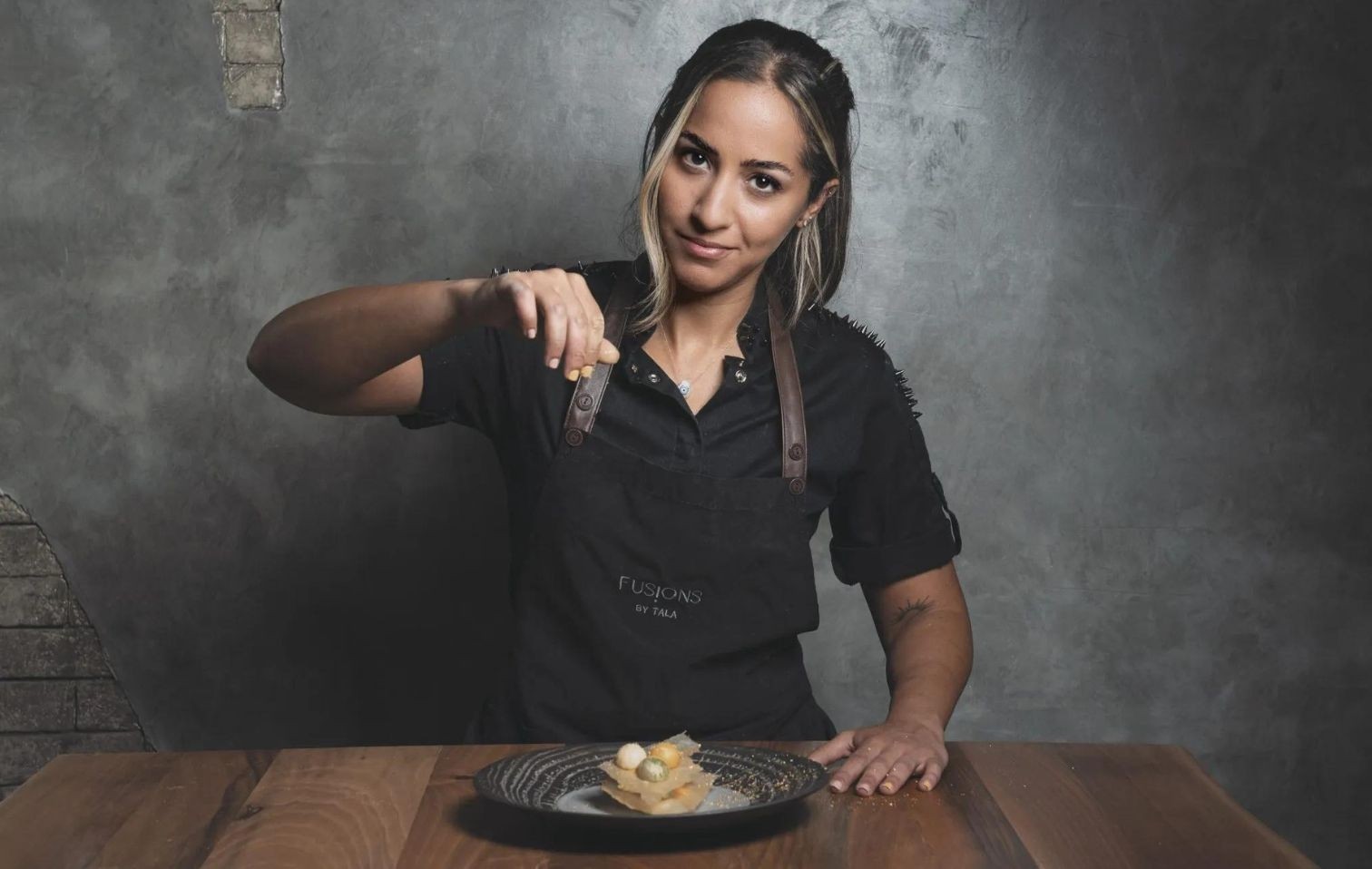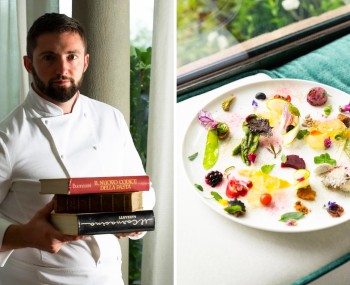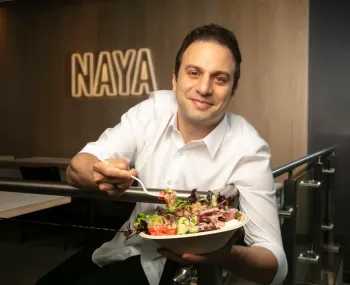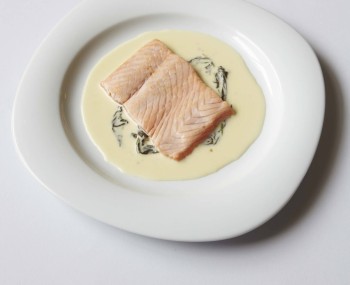A talented and charismatic 34-year-old chef who is taking Bahraini cuisine to new heights.
Discovering the hidden gems of Bahrain through Tala Bashmi
Bahrain
One of the most exciting aspects of food travels is getting to know new countries through ingredients and the use of them. When done right, you can learn a lot about a place, its history, its culture and its traditions through it. Sometimes they tell the tale of ceremonial use, sometimes its medicinal, at other times it’s the struggles of a nation, its colonial past or its dark history of slave trade. Ingredients are what tells apart continents, climates, geographical zones and social classes.
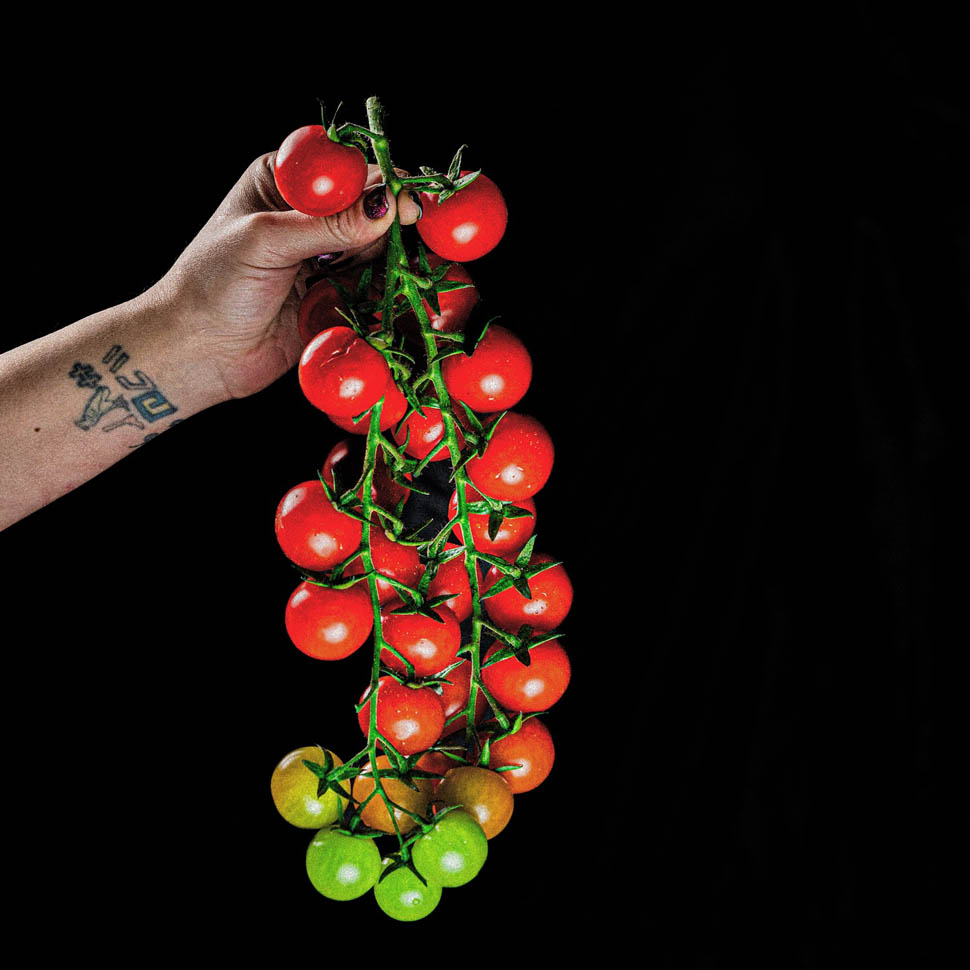
So what do you really know about Bahrain, let alone Bahrain’s ingredients and history? There’s a Formula 1 race there, true. It’s big. So big they have separate counters at the airport just for the drivers and their entourage and cocktails at the restaurants dedicated to different teams. It’s one of the gulf states but, you know, the not Dubai one? Yep. And, mind you, they will let you know with a dismissive smirk they have 4.000 years of history whereas “The UAE only has 300, at most”. The Dubaians in our group are grinding their teeth at that remark. They are so proud of their little kingdom that even the expats living there refer to themselves as “island people”.
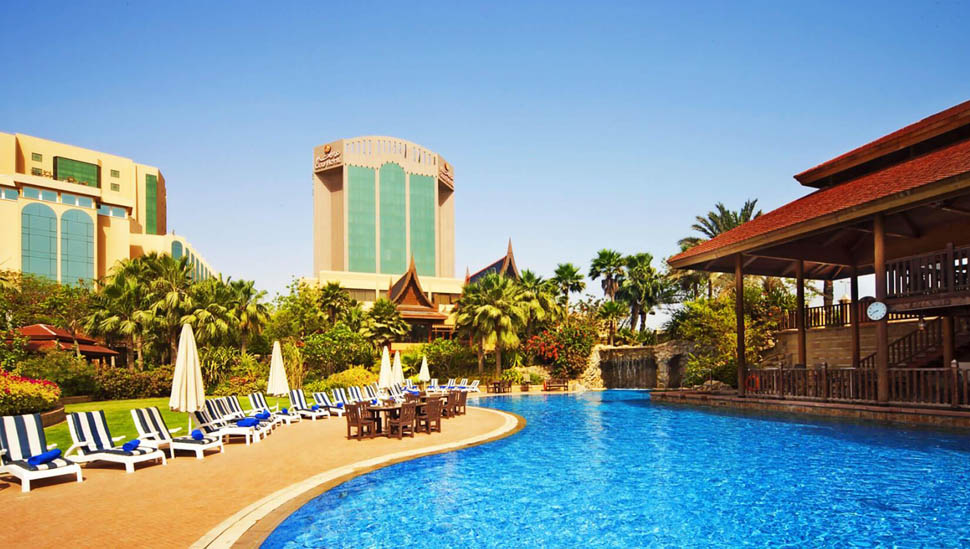
Bahrain is probably the most liberal of the Gulf countries, a nation of well-travelled, open and tolerant people fluent in English since most of them were educated abroad. A place no one will look at you sideways if you are wearing something a bit more revealing – even though they themselves mostly dress traditionally. The perfect entry for beginners to Arab world, as I am told by one of the expat chefs here, Milano born Susy Massetti who runs Italian restaurants L’Orto, No’vo and L’Una in the capital Manama and a regenerative farm Roots & Shoots in nearby Hamala.
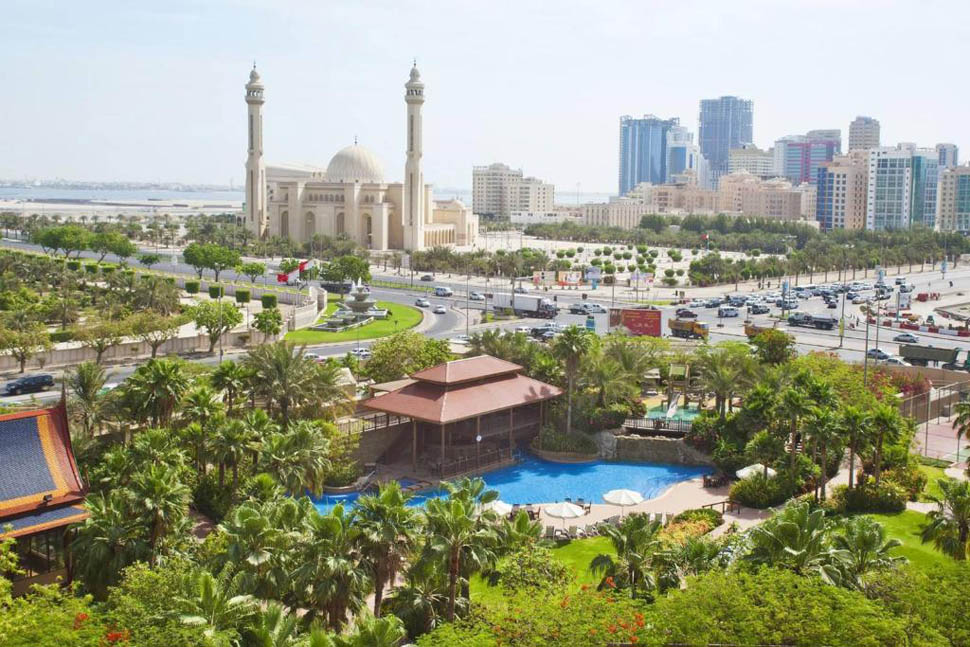
Bahrain is so liberal, in fact, that the Saudi and Kuwaiti who are the main tourists here call it “Las Vegas of the Gulf” which is a slight oversell to be honest - this is by no means some sort of gambling or prostitution mecca - the term applies more to the openness of Bahraini, to alcohol consumption which is much less restricted then in some of its neighboring countries and to the surprisingly buzzing nightlife.
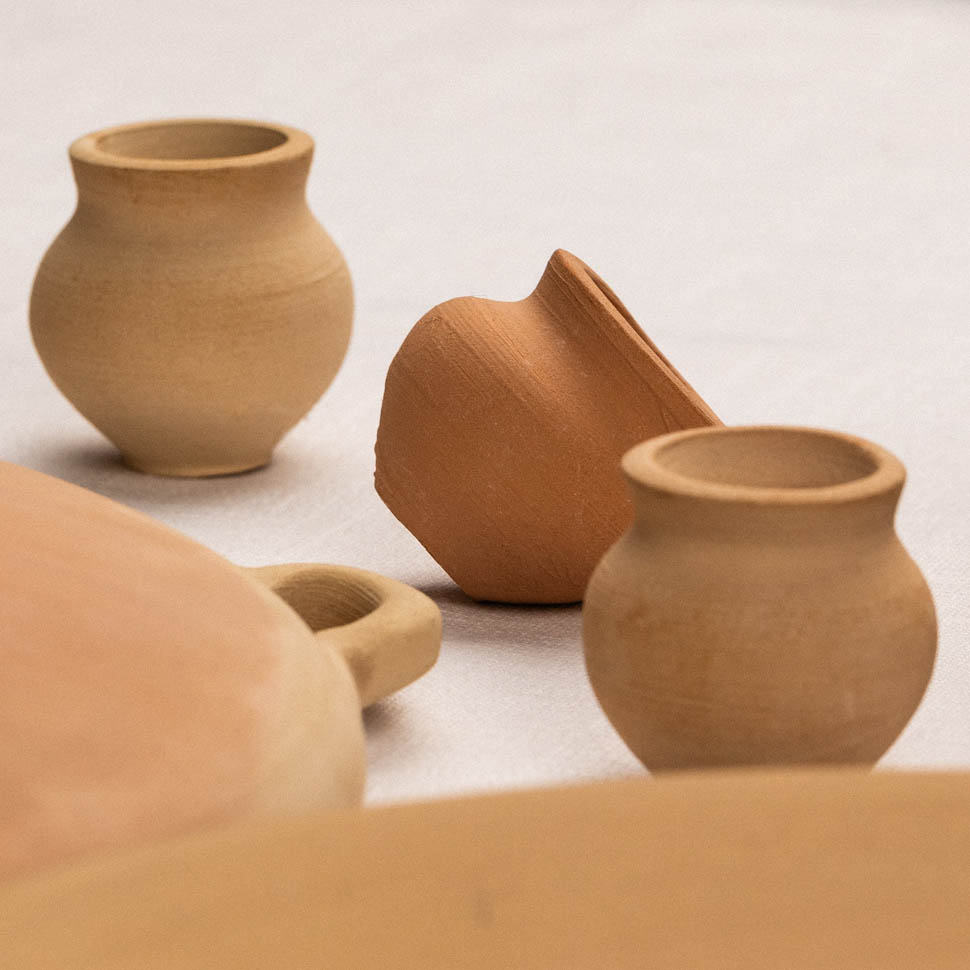
Bahrain crash course in history lets you know the name of the country means “Two seas”, where the salty sea water mixes with the sweet one. It’s an island of fishermen and oyster divers - the vast majority of world’s highest quality pearls used to originate from here. The Bahraini oyster industry started declining though once Japan started farming pearl oysters that are relatively high quality – but cheaper.
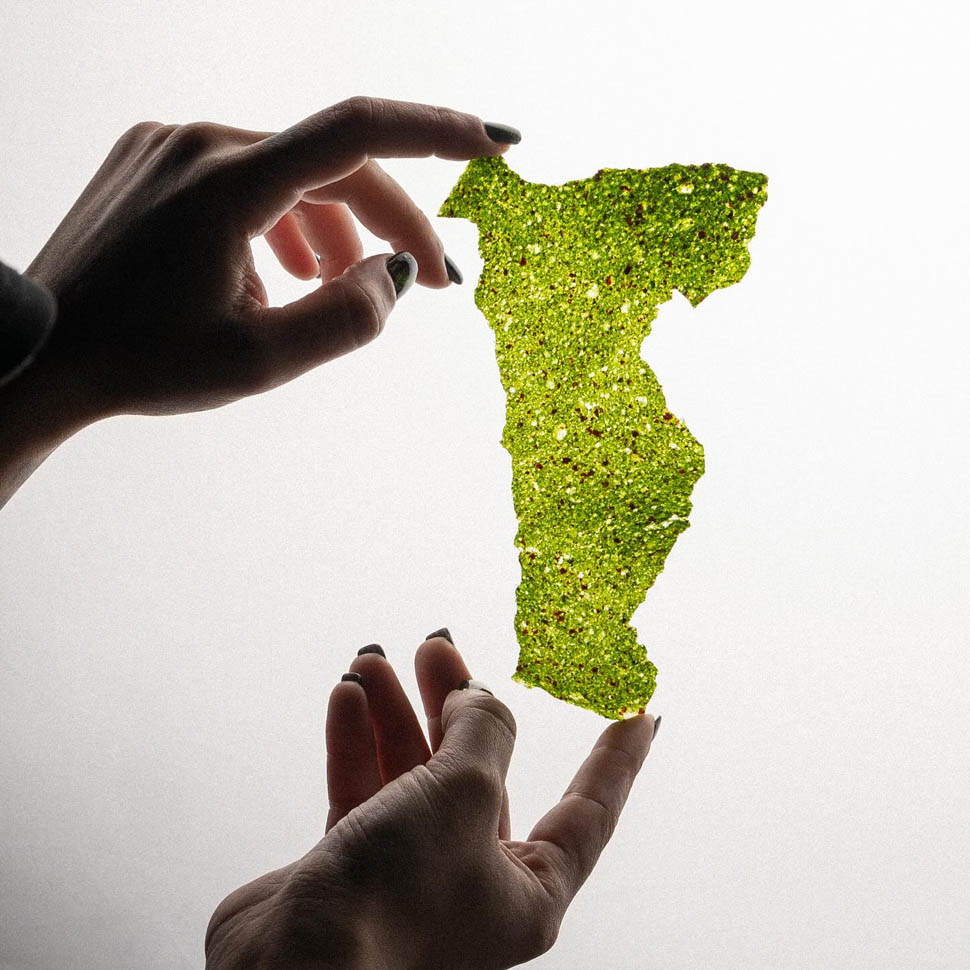
Their flag is white and red - white for snow white pearls and red for the cloth on to which the oyster shuckers carefully place the pearls on. When you stroll down the Pearling Path in the old center of Manama where they used to do oyster trading you can even try your luck at picking oysters and see if you get lucky. You also learn pearls are basically tumors formed inside the shells, created by parasites. Less romantic stuff.
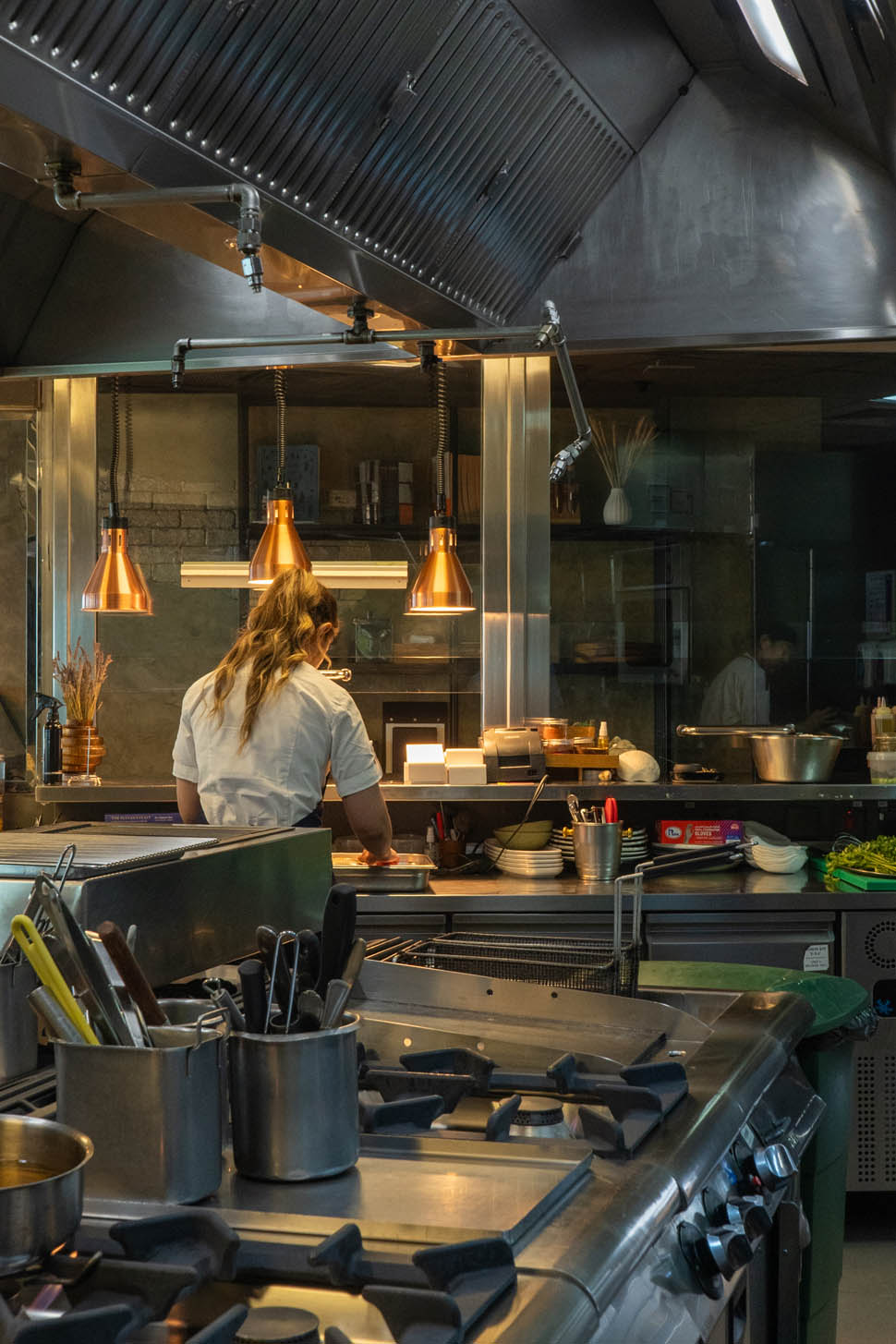
In Bahrain, they have government subsidized organic farms and colorful farmers’ markets where families come to spend a day, and white Bahraini shrimps and sunset cruises and island hopping and a huge ass pipeline connecting them with Saudi Arabia and a historic, Unesco protected fort overlooking the bay where you can ride horses during the low tide. You snack on sticky dates and fig tartlets and you listen to stories about how this is NOT Dubai and how it’s the people, the genuine, warm, welcoming people who make this little kingdom what it is.
The chef: Tala Bashmi
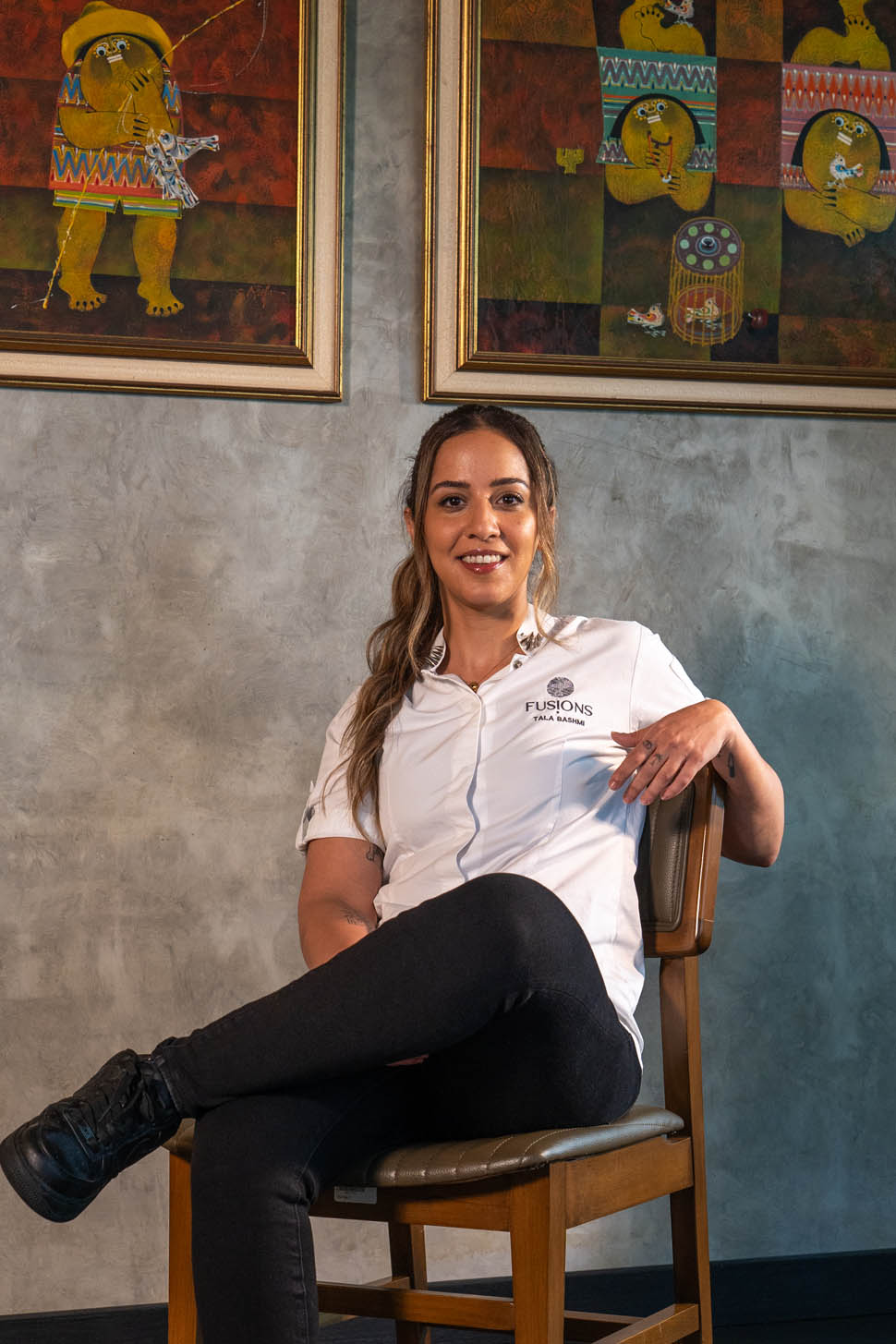
“Everything here is relaxed, you know. Island vibes,” says Tala Bashmi, undoubtedly Bahrain's biggest chef star, really the sole ambassador of the country not many tourists (and even less food tourists) visit. And she has what it takes to break from a regional to a bonafide international star – she’s talented, attractive, energetic, eloquent 34-year old chef who is taking Bahraini cuisine to new heights.
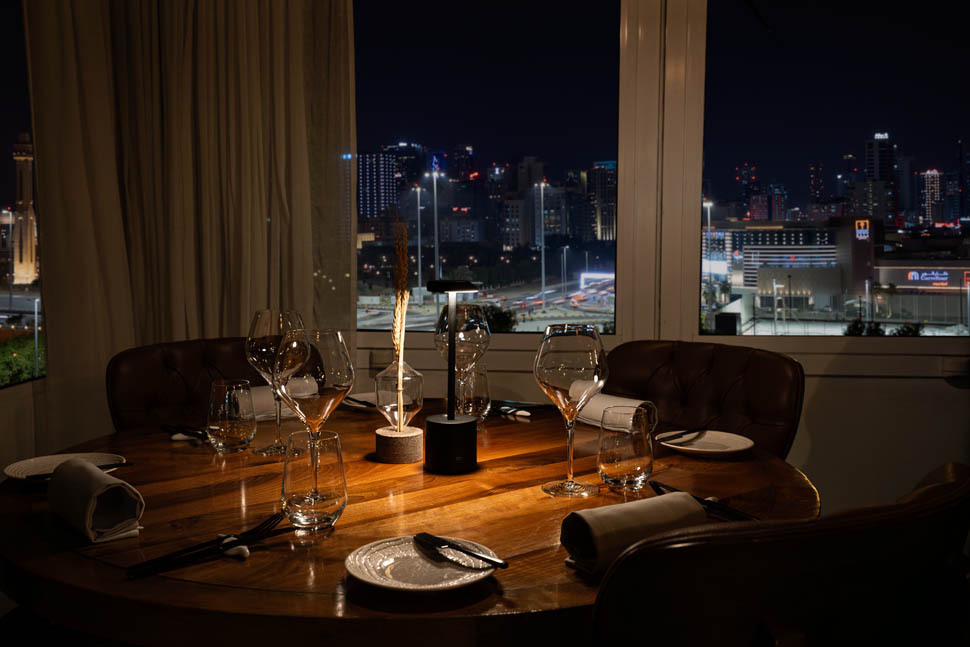
At her restaurant Fusions by Tala she is opening a window into the food culture of Bahrain, putting on display the staples like dates, palm hearts, white Bahraini prawns, lamb, eggplant, mehyawa (fermented fish sauces with spices) and lumee (black lime), but also less known (or used) ingredients like palm pollen - a real revelation and a highlight of the recent Fusions menu.
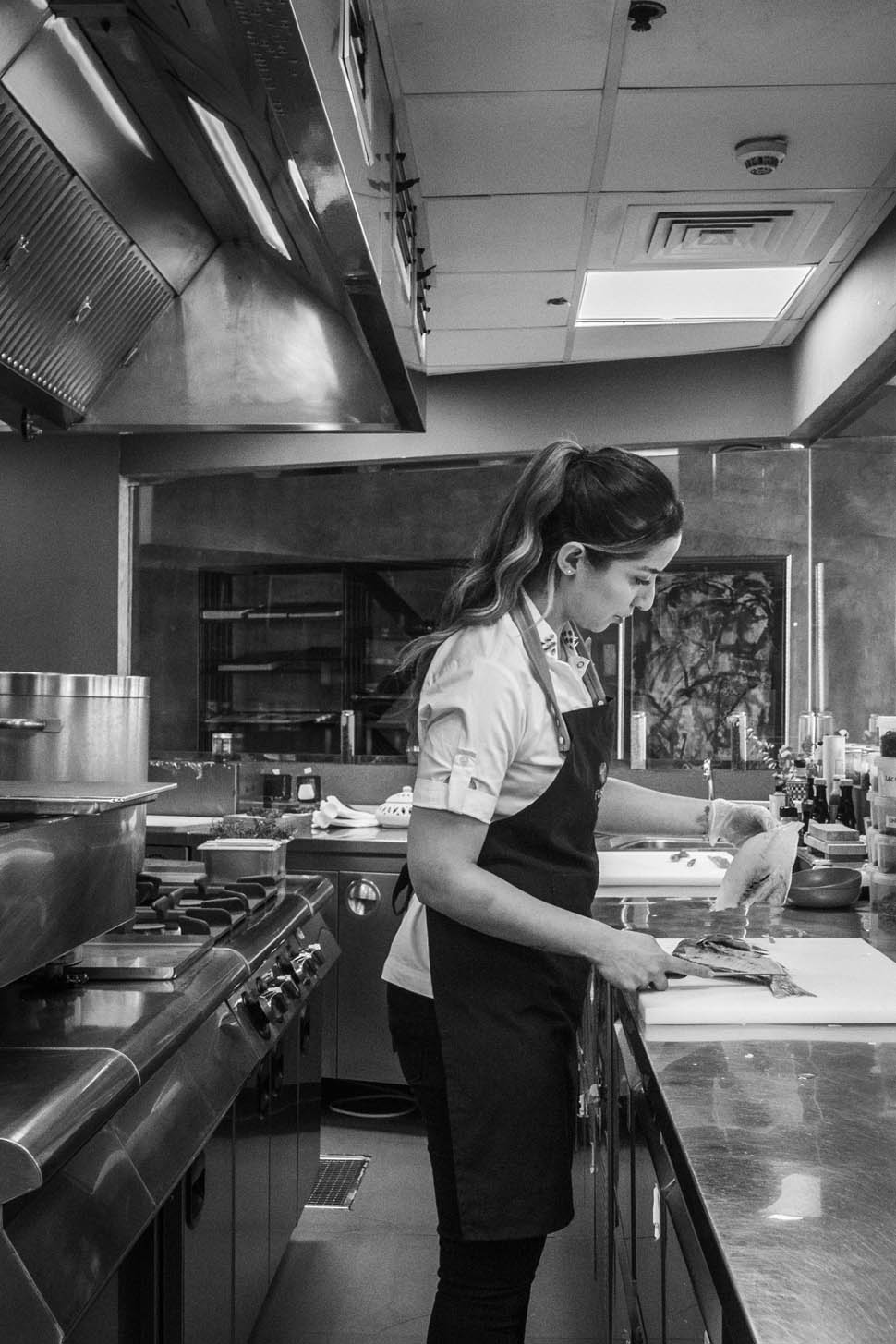
Unlike with flowers, palm pollen grows like a bouquet of delicate grains, on male trees during the very short pollination season. And even though apart from Tala chefs aren't really using it, Arab nations have, for centuries – specifically, to treat diseases and infertility. At Fusions, the pollen is served just quickly blanched, seasoned with sea urchin salt and trout roe to lift it up. It's a genius, delicate dish that stays with you.
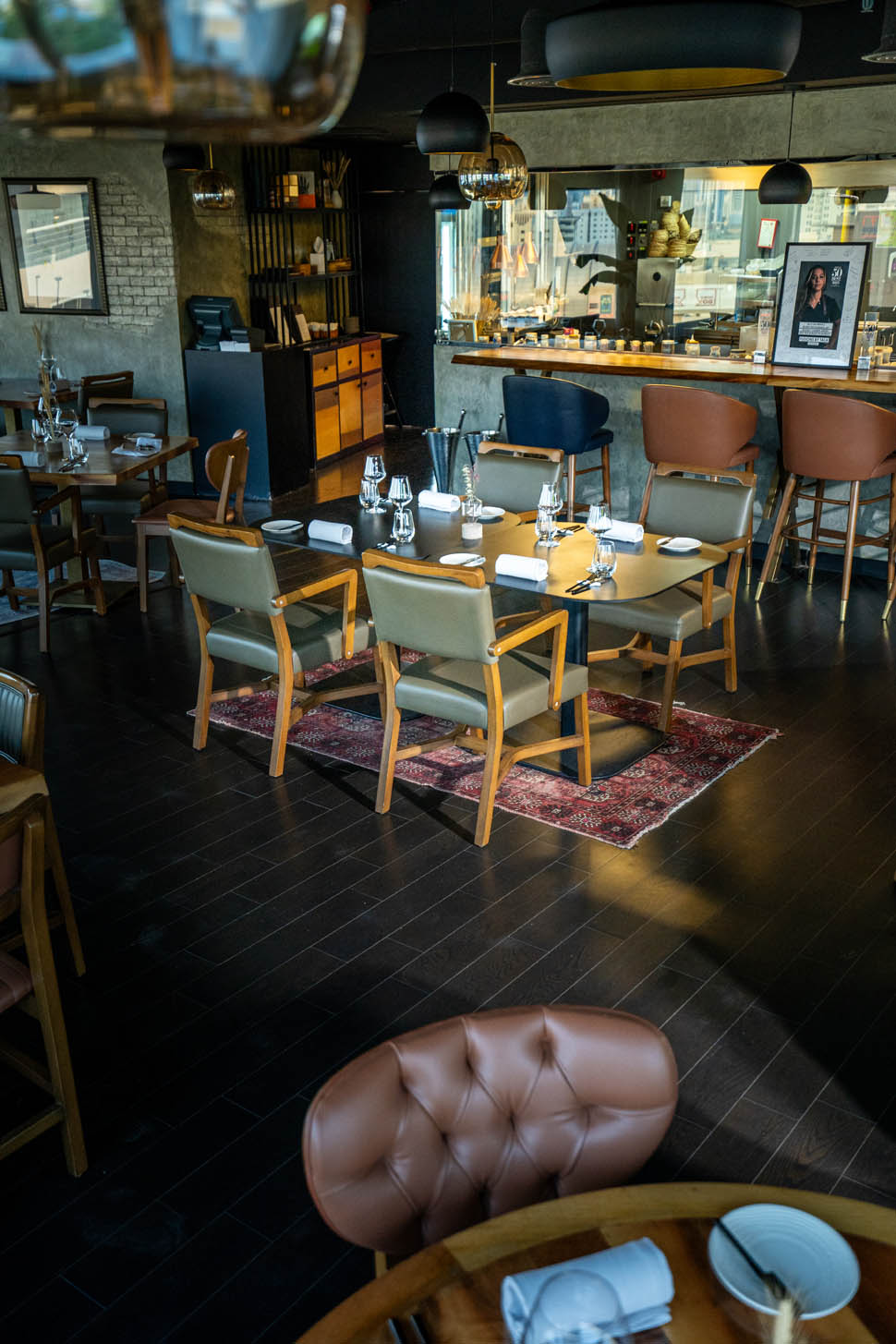
The restaurant, located on the sixth floor of Manama’s iconic Gulf Hotel Bahrain, has a rooftop bar attached to it, offering views over the dimly lit town with bright lights of mosque minarets guiding the way. You walk to the dining room past framed Tala’s portrait when she was named the rising star by Best Chef awards, proudly displaying her accolades, including MENA’s 50 Best (Middle East & North Africa’s) best female chef 2022.
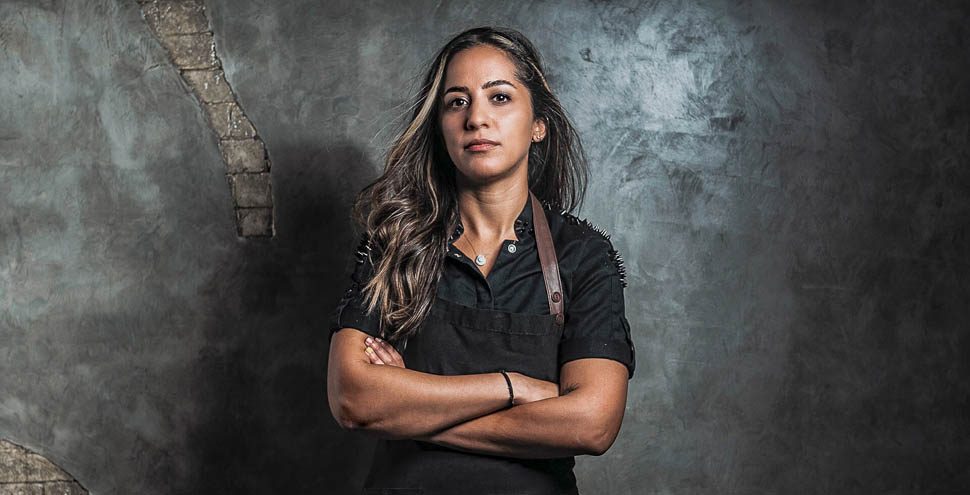
Competition is something she thrives in, having first dreamt of a professional football career and even played on the national team for seven years before an injury cut that dream short and pushed her into culinary arts – for which she moved to Switzerland to gain a formal education. There’s an air of natural confidence to Tala, exuding a certain ease and genuine joy as she moves around the open kitchen, laughs with her team, adding finishing touches to the first set of appetizers being sent out.
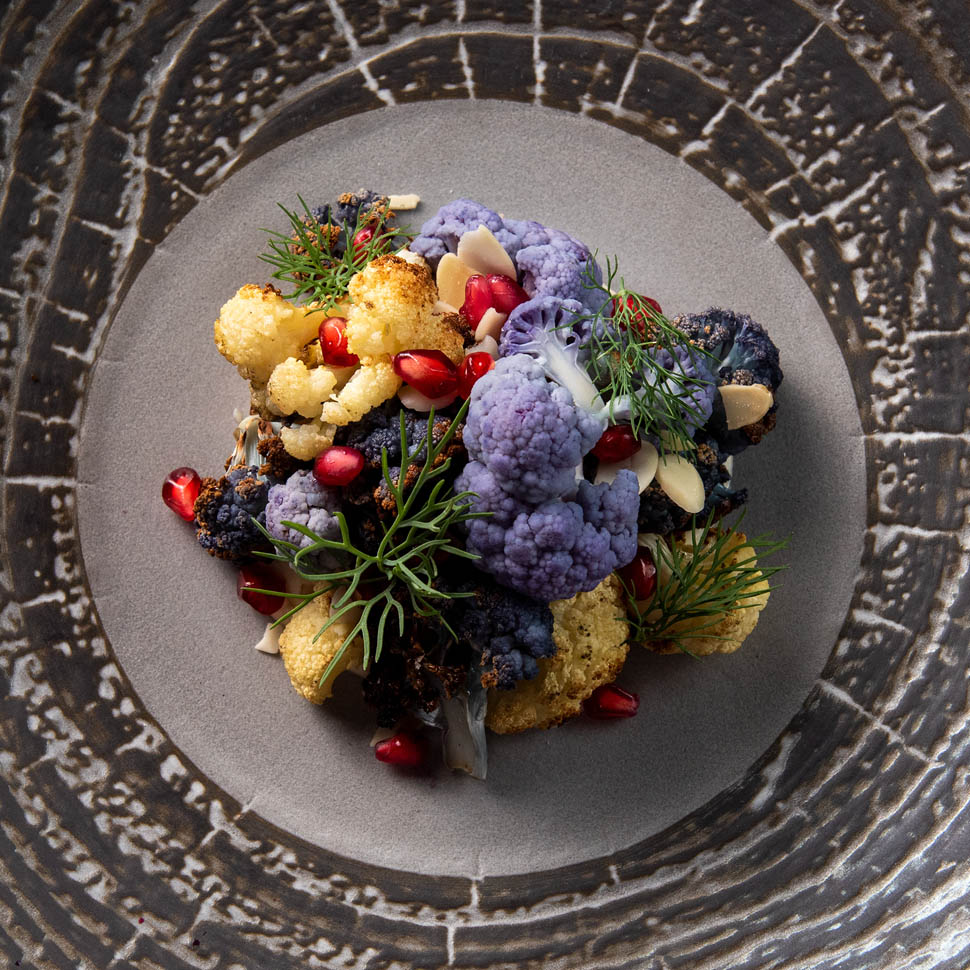
There’s a take on Muhammara (Bahraini rice dish sweetened with date molasses and served with fried salty fish) made here with cured sea bream and pickled unripe bambar (local seasonal fruit), followed by tikka, Tala’s interpretation of popular Bahraini street food (different to Indian version though), in this case, a tiny leafy taco with marinated A5 Wagyu beef, black lime gel and date pickle, and Ghoozi (traditional Iraqi dish made of tender lamb served over rice), made here with braised lamb, date aioli and smoked rice.
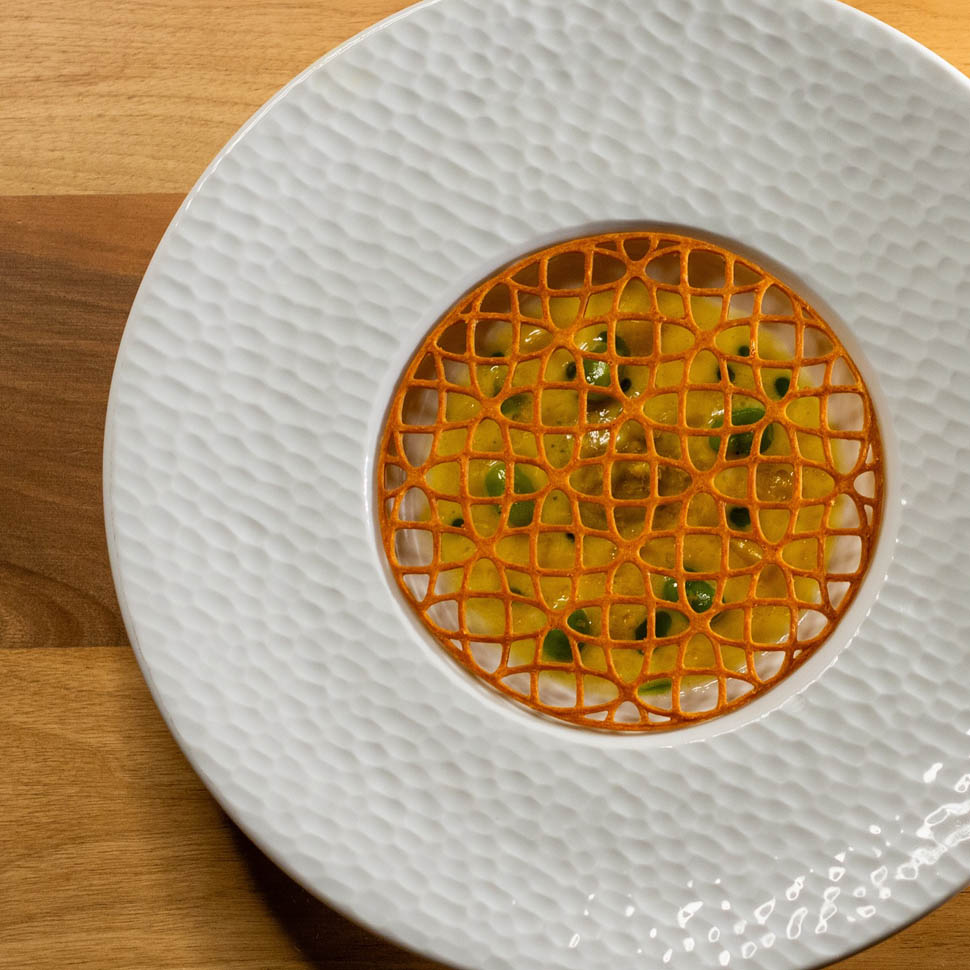
Other than palm pollen, highlights included a lovely, savory, punchy dish of local sweetcorn and prawn topped with a scoop of caviar and what has now become her signature dish, rightfully so, leek ravioli with Bahraini clams and fingerlime, a wonderfully balanced dish of creaminess and acidity.
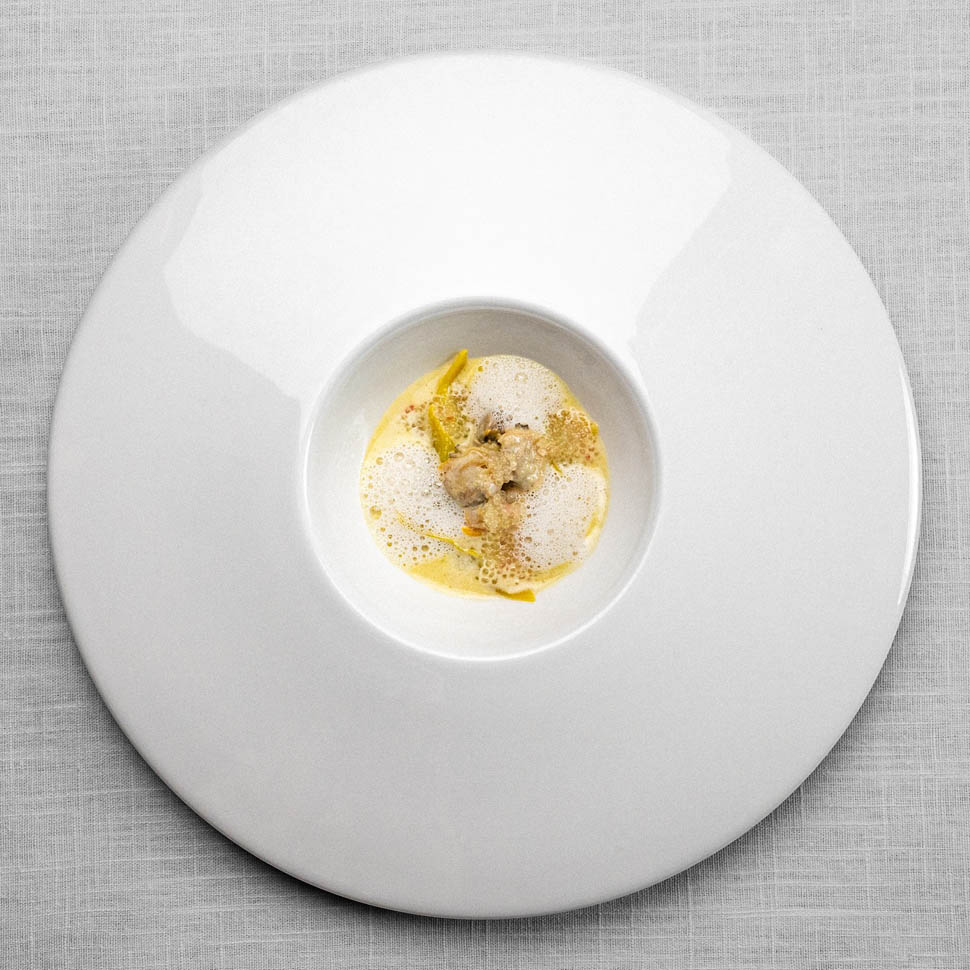
The freshly baked glazed milky bun comes with two different kinds of butter, one mixed with date molasses and the other with mehyawa sauce. Scallop is paired with palm heart and seasoned with strawberry pepper followed by Tala’s upscale version of crab saloona, a very traditional dish she was raised on – slithers of shredded crab are covered with crab jelly, with rice on the side and you mix it at the table with prawn ghee, dried shrimps and tomato ferment.
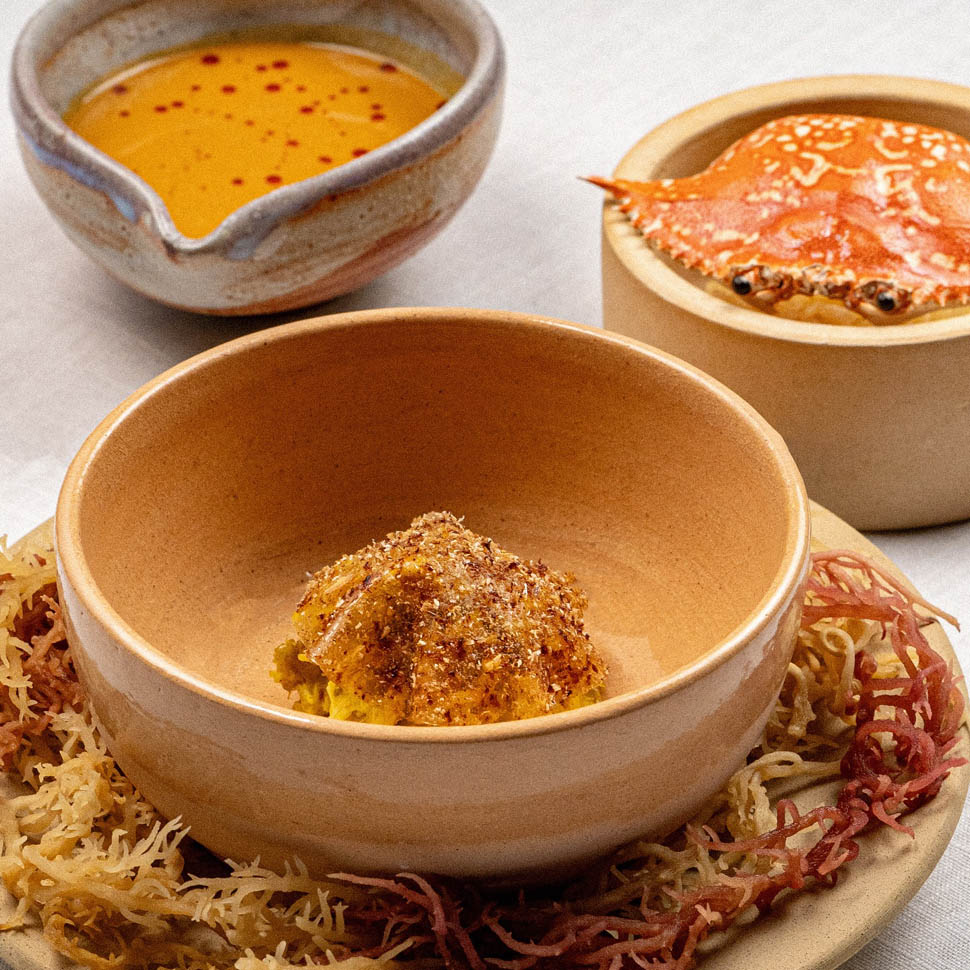
“As a kid, I used to accompany my father to this regular Friday trip to the local fish market and he would talk about old recipes and show me the most unusual food items. This dish is inspired by my father’s cooking after his trip to the fish market,” she explains. And, by the way – she still loves to spend hours on local markets, scouting for new and exciting ingredients. More recently, Tala is also on a mission to revive some old, almost forgotten Bahraini traditional dishes – and reinventing her country’s cuisine while doing that (which can be a slippery slope with traditionalists). The recipe for the lamb dish (burraniyya) with eggplant and medieval spice blend atraf-al-tib stems from Middle Ages – even though it has a fairly classic feel to it.
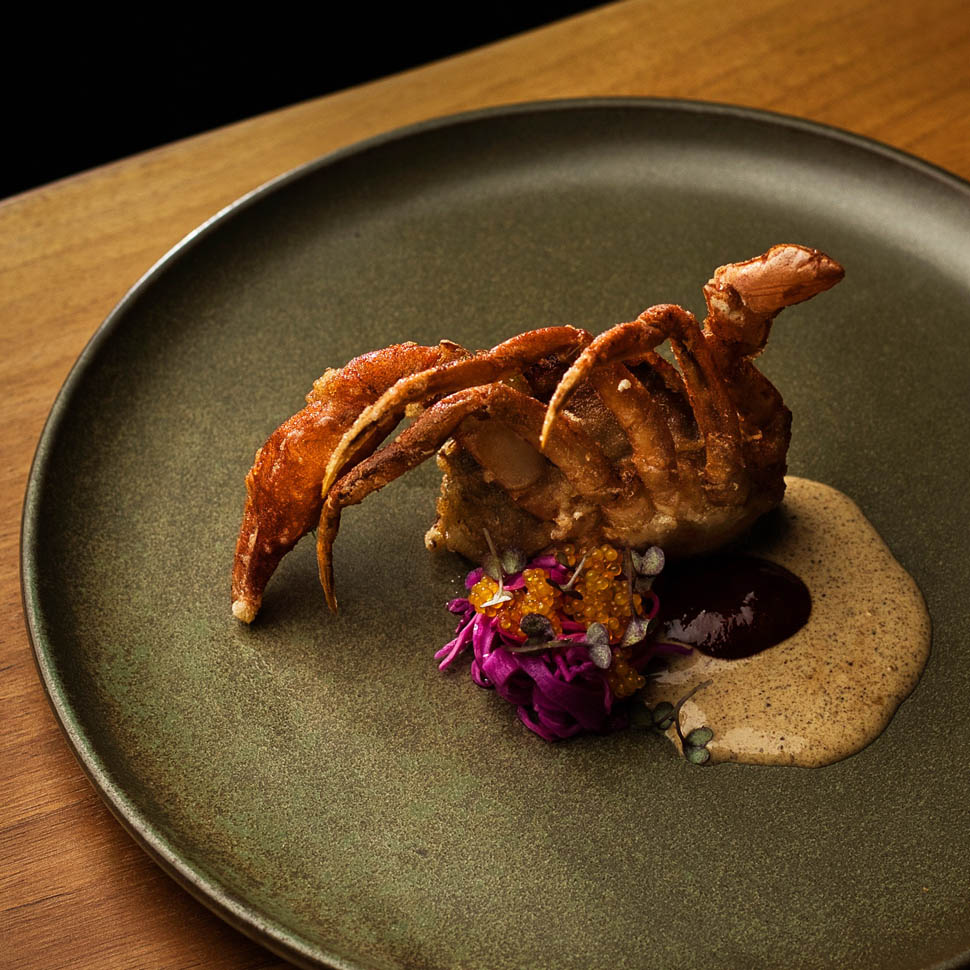
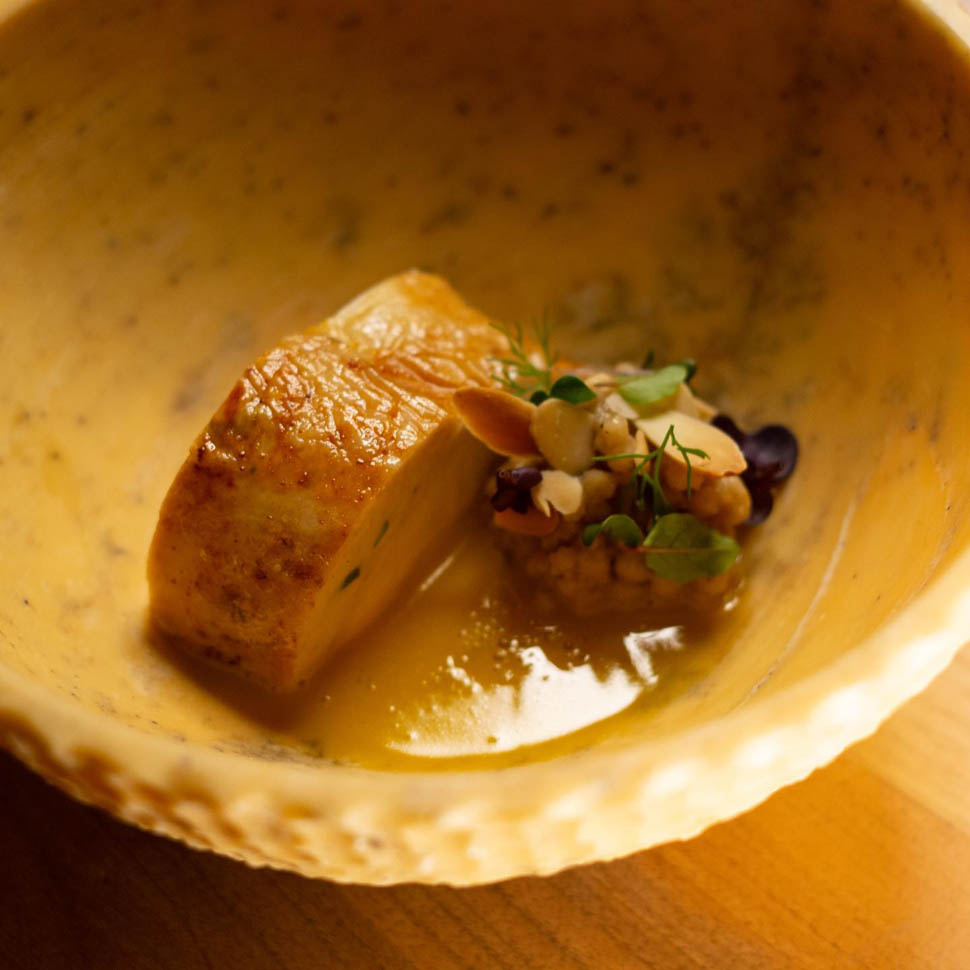
It’s followed by another meat course, “Where’s the Bamia?”, a take on typical Middle eastern okra and meat stew, but in Tala’s fine dining version, with wagyu beef cheek instead of meat offcuts, braised for eight hours and covered with air thin crispy okra sheet. The dessert game is strong as well, with a beautifully presented, shiny lavender cake, an instant social media hit due to its stunning visuals. Cut through, there’s layers of lavender sponge, rich blueberry jelly, lemon crème brulee and white chocolate mousse, covered in gold leaves (but still NOT Dubai!).
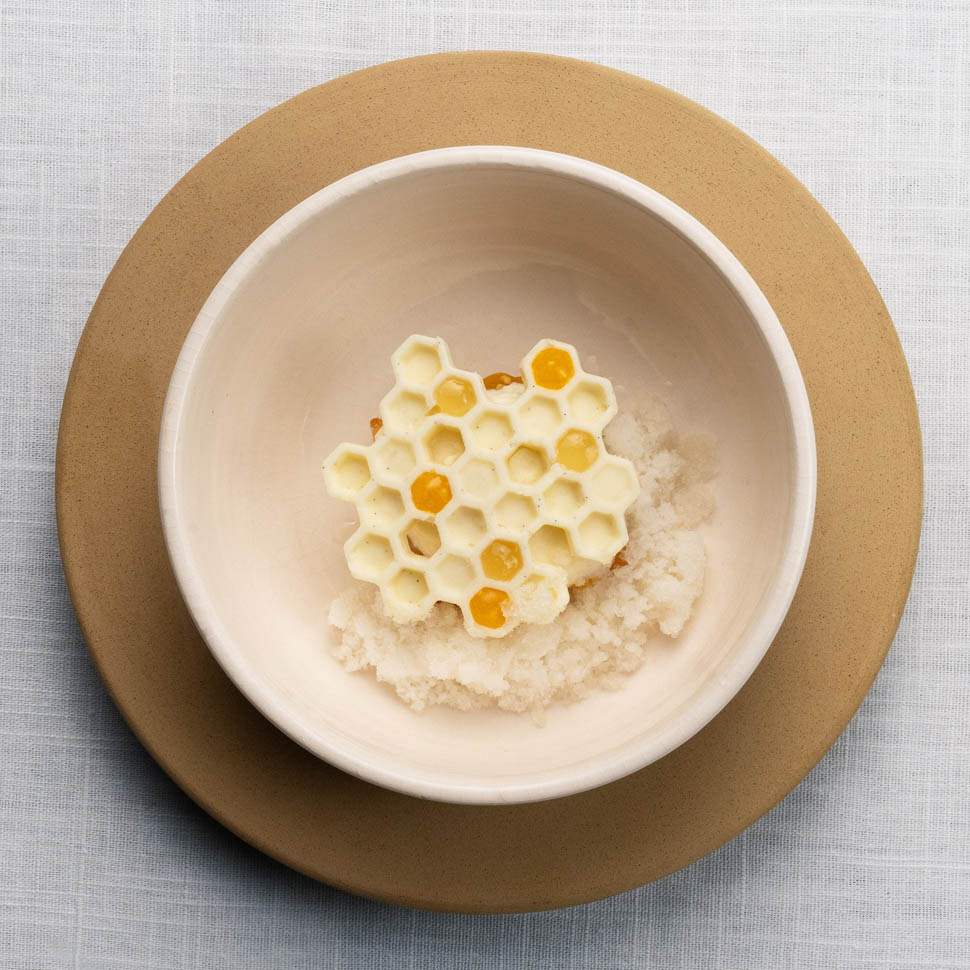
Lumee comes in another incarnation, as a drink pairing. Some out-of-the-box pairings perhaps still need some fine tuning, but overall a combination with black lime spiked cocktails and kombuchas made much more sense within that context and philosophy of building on what’s available locally and what can be used fermented than some generic Western wine pairing. Fusions by Tala Bashmi should definitely be on your radar.
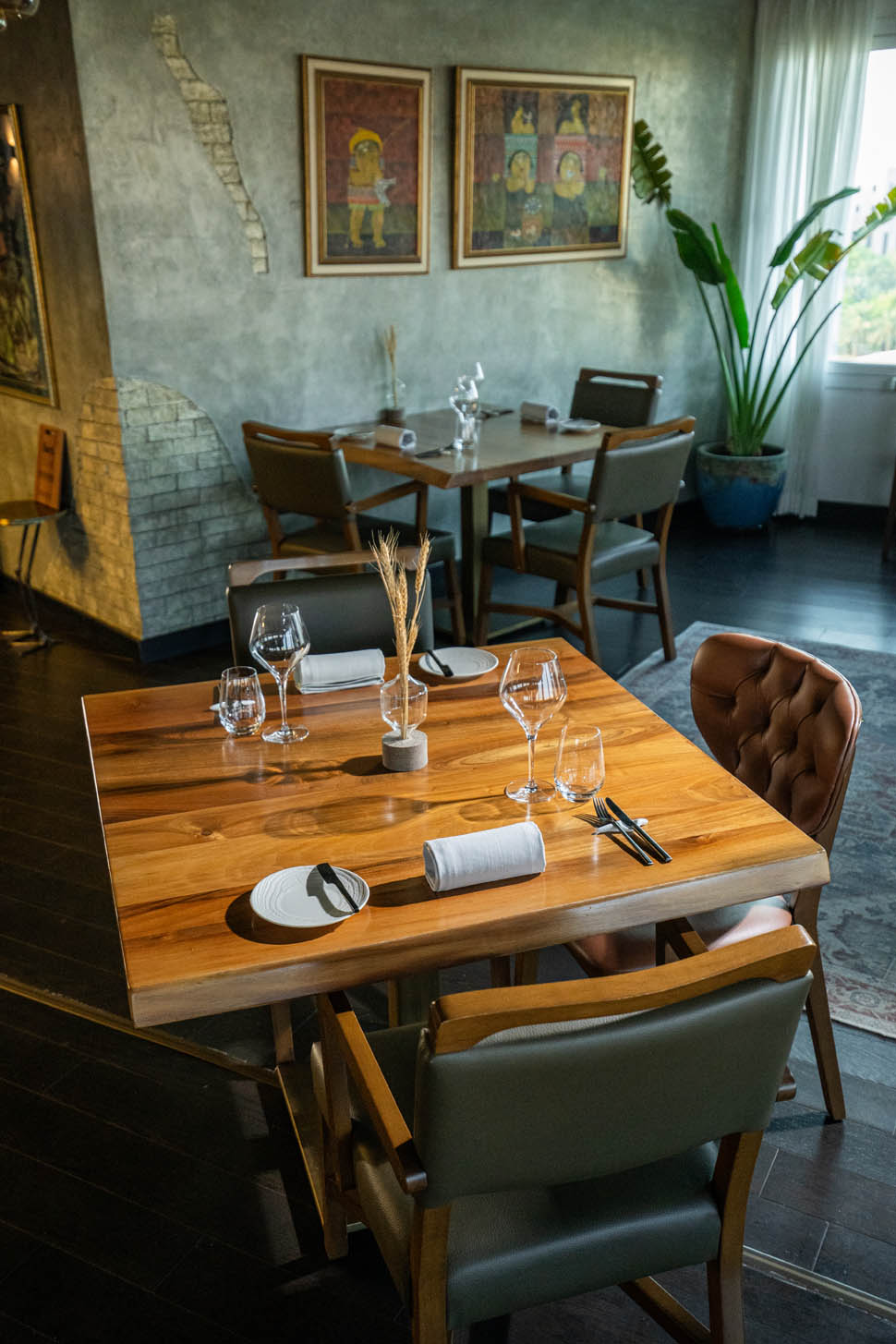
Contacts
Fusions By Tala
Gulf Hotel Bahrain, Manama, Bahrein
Phone: +973 1774 6427
